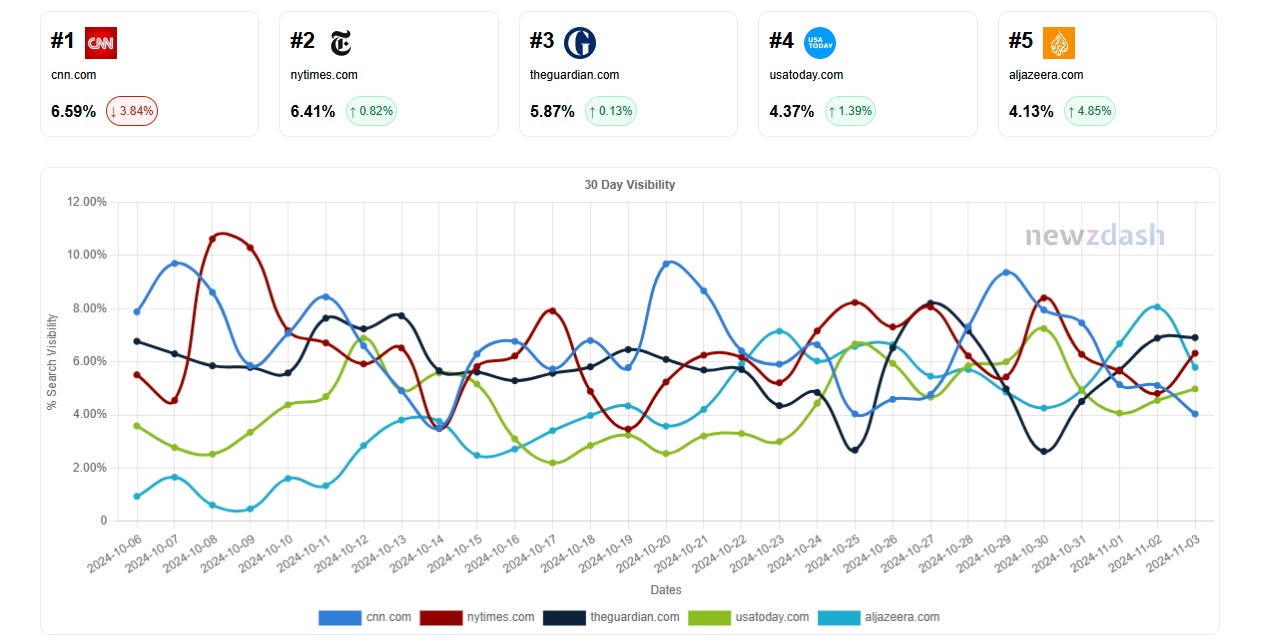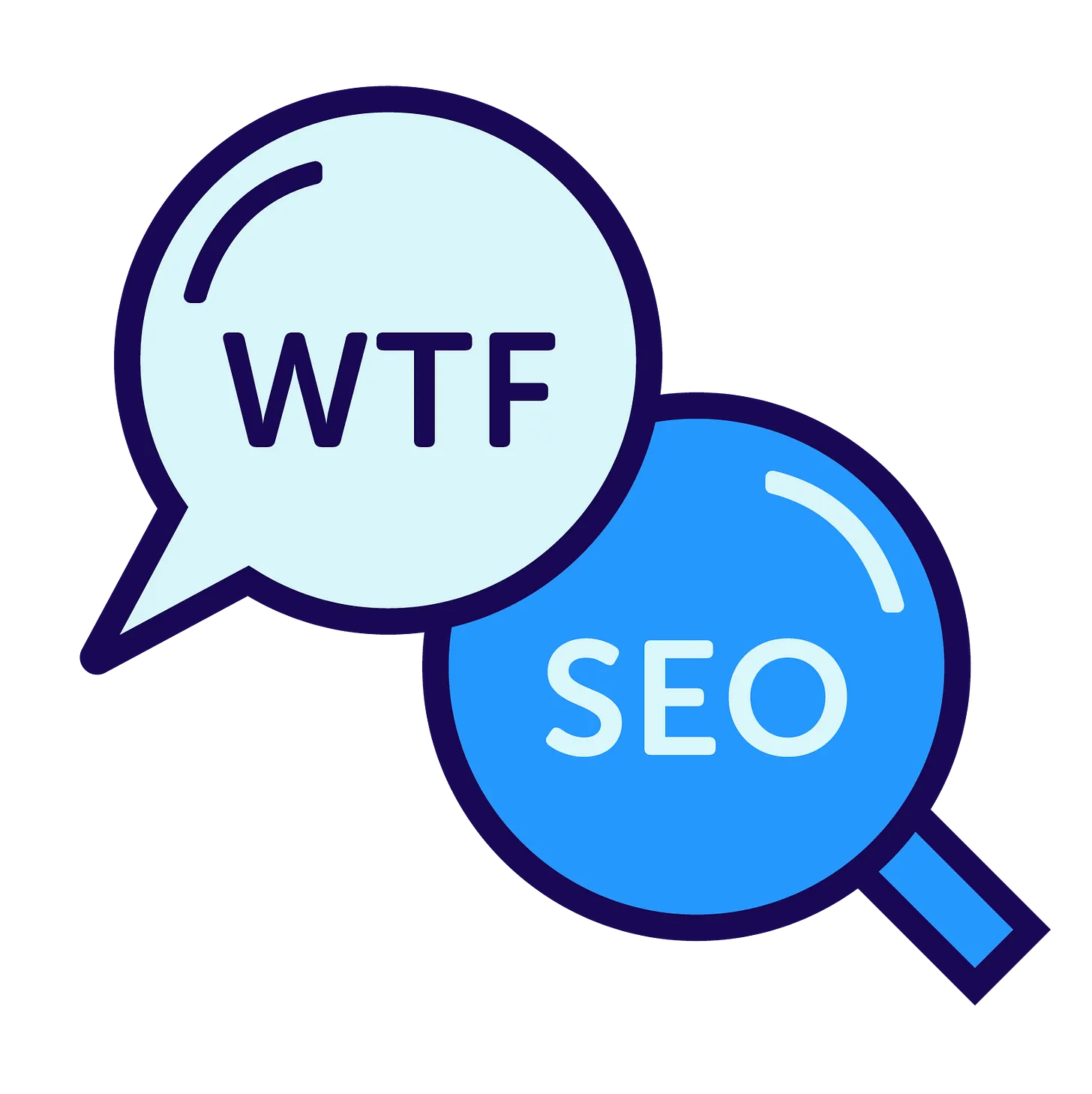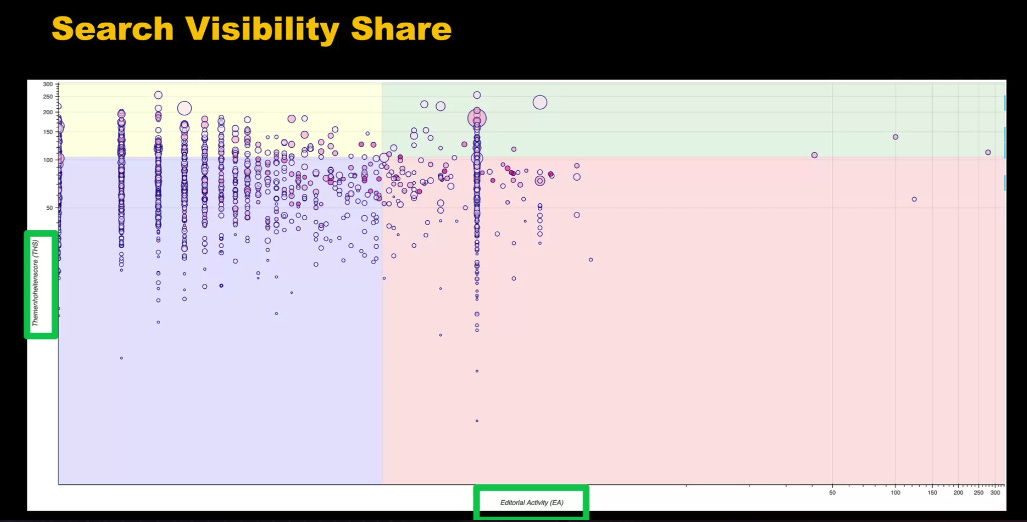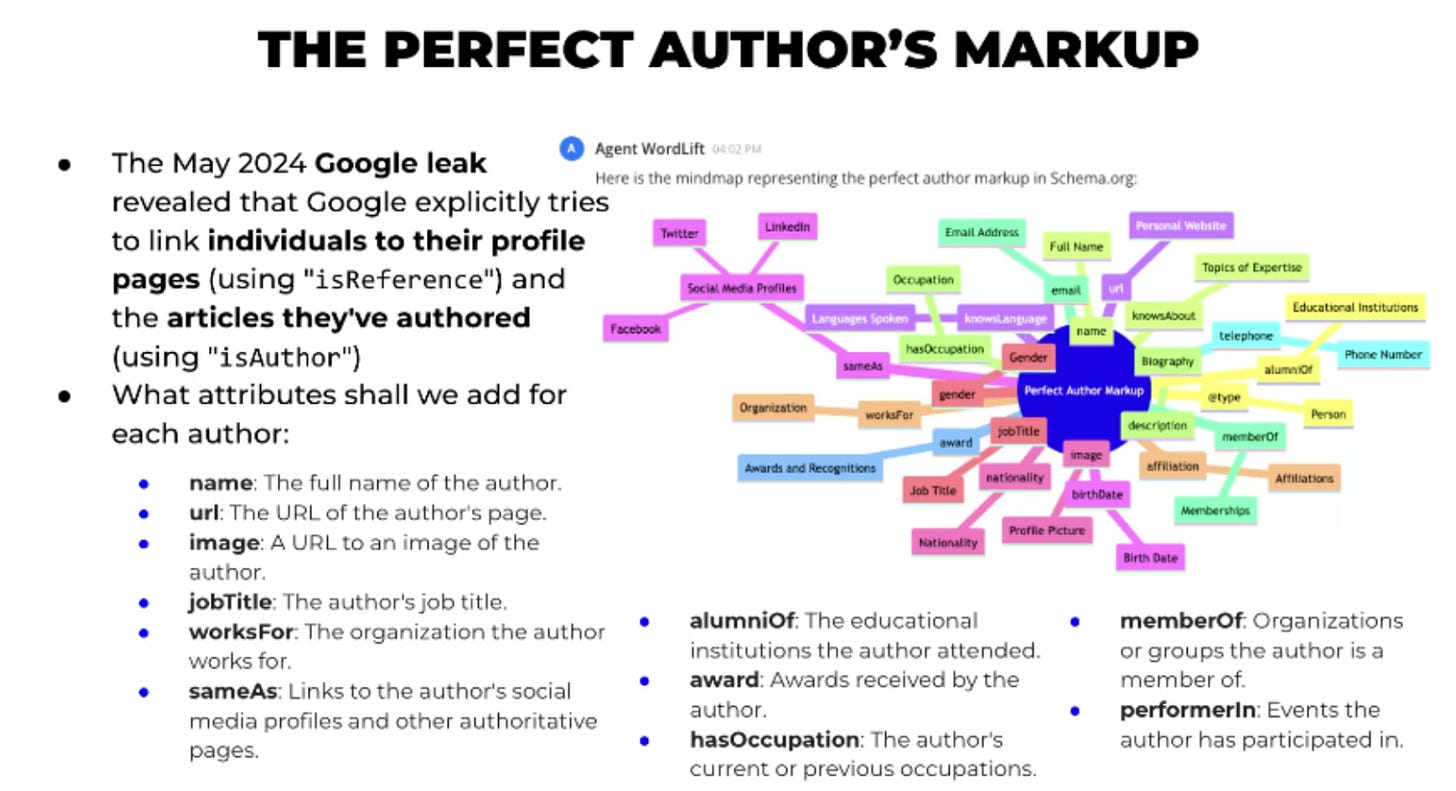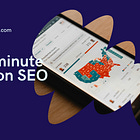What we learned at NESS 2024 (pt. 1)
We had such a great time last week at NESS. Here’s what we learned on day one
NewzDash: 2024 USA Presidential Election: Real-Time SEO Tracker
🚀 Stay ahead in the fast-paced world of news SEO! NewzDash delivers:
LIVE Search Visibility in top stories & organic results;
Real-Time Rankings updated every 15 minutes;
Instant Trending Topics for live coverage;
Real-Time Search Volume estimates;
Competitor Analysis for breaking news.
Hello, and welcome back. Shelby and Jessie here, back from a splendid fall weekend. Shelby got her new car — a freedom she didn’t know she needed — and learned far too much about insurance in Ontario. Meanwhile, Jessie had a decidedly less expensive weekend (🙃), spent playing pickleball, finishing a book at run club (instead of running) and watching Carrie.
This week: NESS recap part 1! We had such a great time last week learning at the fourth annual News and Editorial SEO Summit, hosted by pals Barry Adams and John Shehata. Today, we cover the first day’s sessions and panel. Stay tuned for next week’s issue for the day two recap.
THE 101
Major Google algorithm updates and their impact on news publishers
Publishers know the power of Google algorithm updates. They can “make the earth shake,” Glenn Gabe said during his enlightening talk. Glenn focused on the complex systems Google uses to rank content, including the Helpful Content Update and the March 2023 core update.
Glenn refers to the former as HCU(X), as it included user and site experience. This is something Google’s John Mueller said previously — quality is about more than just content.
These updates can be devastating. Glenn recommends publishers take his “kitchen sink” approach to remediation — try and fix as many problems as possible across your whole site. To bounce back from an update, Google wants to see significant improvements over time.
Google has been handing out manual actions for site reputation abuse for months, but we’re still waiting for the algorithmic component. Google has confirmed they are not testing an algorithm, and Danny Sullivan said Google will be “very vocal” about its release.
That said, there’s been plenty of volatility recently, especially for sites with affiliate sections.
Glenn outlined how the visibility of sites like Forbes Advisor, CNN Underscored, WSJ Buyside and Marketwatch Guides have been affected. He recommends staying away from white-label services and coupon sections with little to no oversight to avoid a penalty.
Glenn’s top tip: Publishers should stay away from aggressive advertising and affiliate marketing. If a site was affected by an update, take the kitchen sink approach for fixes. Then, be patient. Recovery will likely not happen until the next core update.
Achieving topical dominance: Measuring topical authority and deriving strategic actions
Google’s confirmation of news topic authority highlighted the importance of signaling quality E.E.A.T signals and enhancing that wherever publishers can on their sites.
Olaf Seydel presented on the importance of measuring topic authority — something that's even more important after Google confirmed news topic authority is incorporated in its ranking systems. He covered how to enhance two important factors: authorship and internal linking, highlighting who is an expert and how the stories connect together.
He then explained how search visibility can be measured, understanding where a site writes a lot and gets a good return versus areas that may be underperforming.
Here's Olaf's four-step process for enhancing topic authority.
Check:
Review news box visibility to determine sites/content that performs best;
Review keywords and entities for a content plan;
Review topic and tag pages;
Review your technical SEO;
Review snippets available in SERPs;
Review structured data on-site.
Optimize internal linking:
Link to entities, topic pages and relevant/important articles;
Use an auto-linker.
Content:
Conduct keyword research;
Spruce up existing content;
Create optimized templates for recurring formats;
Link to and optimize author pages.
Monitor:
Outline the keyword cluster to measure impact;
Review what’s ranking in SERPs.
Pro tip for sites handling wire content: If you rank well for it, expand it with original reporting. Highlight the stories that perform well. Explore subtopics and additional stories to establish and showcase your authority.
Topic authority must be exercised on a brand level, Olaf says. It’s not just about SEO. Show your authority beyond search in newsletters, social, paid marketing, podcasts and more.
How publishers can own their audience in the age of AI
Edward Hyatt and Brendan O’Connell spoke about the challenges and opportunities presented by AI Overviews, and how publishers — with and without paywalls — can work to better own their audiences.
Even as Google traffic has declined, readers arriving from search remain high value — they have a greater propensity to subscribe. At the same time, the emergence of AIO has been disruptive. But as Edward explained, search has always been in a state of transformation. AI is just the next phase.
How can publishers can own their audience:
Focus on quality, intentional reach. Build a purposeful audience and target those most likely to be loyal readers or subscribe;
Optimize for search intent by understanding the subtle differences between news and informational queries;
Boost trust and authority signals. Start by expanding author pages, then claim knowledge panels and have writers engage on social media;
Consider on-page elements like polls, quizzes, comments or a related stories module to boost engagement;
Prompt readers to install your app or subscribe to a newsletter.
Finally, consider blocking AI crawlers if it doesn’t align with your business model.
Semantic SEO and fact-checking in the age of AI
Andrea Volpini’s talk focused on the value of entities and schema markup within the context of SEO and AI.
One problem of large language models is that they function as consensus machines, Andrea explains. This is a major challenge of AI — it is not trustworthy.
Language models are increasingly becoming the interface for how users find information. This is creating a crisis in publishing, as audiences are becoming more accustomed to consuming information in a zero-click world. Plus, we're moving away from classic search results to a fragmented ecosystem where AI helps with the discovery process across multiple channels. This fragmentation in the user journey is another challenge for publishers.
Andrea also talked about the value of schema in publishing. He detailed what is considered the “perfect” author markup (screenshot). Correct schema — applied across an entire site — can help offset the authority challenge that’s posed by the recent flood of AI-generated content.
What are the must-haves for structured data? Andrea says robust structured data for authors is highly valuable, then all the data related to an article’s publication date and time. Publishers should also check that the data contained in a page’s HTML matches what’s in the schema. Misalignment can have a negative impact, he explains.
Five-part Google Discover playbook
Discover can be a black box and traffic can be very volatile. In this talk, Vivienne Goizet outlined her five-step plan for winning on Discover.
Step one: Find the right topic. Not every trending topic that works well on search will work for Discover (and not every story needs to be optimized for search). Avoid topics with short-lived interest. Successful Discover topics have evergreen potential and some history within the Discover ecosystem.
Step two: Craft a great headline (or multiple headlines if your CMS allows). Avoid clickbait — instead, bait readers with a compelling, well-crafted headline.
Step three: Optimize the featured image. Readers on Discover are scrolling through a feed of content. Select a photo that evokes emotion and grabs attention. Take the time to review available images and find one that’s most likely to engage readers.
Step four: Have persistence on Discover. It’s possible that stories on a given topic won’t perform well at first, but there may be a better time to revisit.
Step five: Analyze your data. Start with a review of your Discover headlines and look for patterns:
Isolate headlines with questions: Do they perform above average for page views?
Does the keyword's positioning in the headline affect performance?
How many stories are underperforming on Discover? Are they about a related topic, or use a similar headline approach?
Is there an entity that always performs well on Discover?
Exclude the top 10 per cent of high- and under-performing content from the analysis to better understand how the majority of your stories are working on Discover.
Real-time SEO for live news events
Pivotal news moments like the U.S. presidential election can deliver publishers huge audiences. To make the most of this news moment, it’s essential to plan.
John Shehata outlined his five-phase live event planning strategy, starting with early planning and ending with a comprehensive debrief.
Pre-planning: Start by analyzing past performances, noting traffic benchmarks, top keywords, topic clusters and effective content formats. Complete keyword and competitive research. Create new topic clusters. Outline your content plan for before, during and after the event.
Editorial and SEO alignment: Identify the keywords you want to rank for. Create a plan for headlines and internal links. Think about what evergreen content can be refreshed.
Real-time SEO: For multi-day events, create a new blog on a fresh URL each day. For single-day blogs, regularly update the content, headline and timestamp. Launch blogs a few hours before the event starts.
Day two content: Traffic on day two will likely exceed day one numbers. Consider what content can be refreshed or expanded the day after the event.
Performance analysis: After the event, perform an in-depth analysis of your performance. Communicate highlights to the newsroom.
The best way to succeed during a big news event is to plan, plan, plan.
Ask the SEOs panel: Glenn, Brendan, Edward, Olaf, Andrea, Vivienne, John and Barry
What’s the verdict on AMP?
Glenn says AMP started as a good idea, but became a burden as time went on. Many publishers, like the New York Post, dropped it without negative effects. Edward spoke about the experience of publishers in Latin America who rely on AMP because of the varying accessibility of speedy mobile internet. Barry says to keep AMP if Core Web Vitals are poor, until those metrics improve.
(Here’s what Barry thinks in more detail.)
What news site do a good job of communicating authorship?
Glenn said the New York Times author pages are “outstanding” (we agree). Andrea says to include robust author schema with all relevant information, using Person or ProfilePage schema on the bio page. Edward recommends publishers think about their audience when building author pages, and ensure these pages communicate E.E.A.T (highlight their expertise and awards).
What’s the SEO biggest priority for solo editors?
Vivienne says to find allies and set up training sessions to create more evangelists. Olaf agrees, saying “basic SEO” is something everyone in the newsroom should know, and for more advanced considerations, like technical SEO, tap in the specialists to enhance the effort. Edward says prioritization comes down to business goals and what leadership values most.
What’s the biggest challenge for 2025?
While AI is clearly a challenge, algorithm updates have been a bigger test, Brendan said. “Another tsunami of algorithms could crush the revenue of publishers,” he said. Big updates, Glenn explains, can wreck the visibility of a site. John points to revenue sources as the biggest challenges, specifically for publishers who are not sufficiently diversified.
#SPONSORED - The Classifieds
Get your company in front of more than 12,000 writers, editors and digital marketers working in news and publishing. Sponsor the WTF is SEO? newsletter!
THE JOBS LIST
Audience or SEO jobs in journalism. Want to include a position for promotion? Email us.
The Telegraph is hiring a Senior SEO & Content Manager (London, UK, hybrid).
RECOMMENDED READING
Google news and updates
🤖 Recaps from Google’s Web Creator Summit by attendees (site owners negatively affected by the Helpful Content Update):
Kim Snaith: “The short of it: as expected, we were given no answers.”
Mike Hardaker: I drank the kool-aid at the Google Web Creator Summit.
Going Awesome Places: What I got out of Google's Web Creator Conversation event.
Joshua Tyler: I attended Google’s creator conversation event and it turned into a funeral.
Morgan (Charleston Craft): “If you were hit by HCU, do not expect a recovery anytime soon.”
Marie Haynes: Overview of key lessons from the summit at Google.
Even more recommended reading
📓 Marie Haynes: SEO takeaways for Google’s third quarter earnings call.
📈 Kevin Indig: In August, ChatGPT outpaced Bing’s traffic — a significant milestone for the AI tool.
🤖 Harry Clarkson-Bennett: A detailed breakdown of Top Stories and the algorithm that powers the SERP feature.
🏃 Coywolf: How to appear in ChatGPT search results without training their AI.
📈 NYMag: Reddit’s traffic is surging. It can thank Google.
What did you think of this week's newsletter?
(Click to leave feedback.)
Catch up: Last week’s newsletter
Have something you’d like us to discuss? Send us a note on Twitter (Jessie or Shelby) or to our email: seoforjournalism@gmail.com.
Written by Jessie Willms and Shelby Blackley


